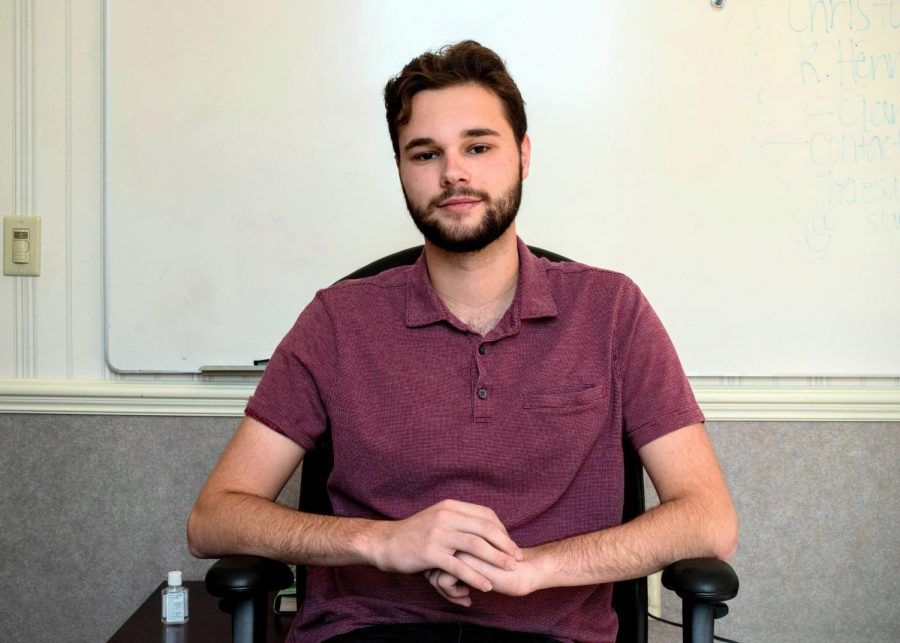ISG sets out to make textbooks more affordable
Student Body President Connor Josellis sits in his office in the Illini Union on Saturday. The Illini Student Government is working to lower textbook prices along with pushing for more use of open-source textbooks.
Oct 17, 2019
By Salem Isaf
Contributing Writer
This year’s Illinois Student Government has made it a goal to lower textbook prices for students. However, it’s not as easy as telling the bookstore to lower its prices.
“Textbook prices are really controlled by big publishing companies,” said Connor Josellis, president of ISG and junior in Media.
Mergers of these companies make prices far more expensive. This is where the new ISG administration has taken action. Josellis recently signed onto a letter sent out by U.S. Public Interest Research Group, a federation of organizations that advocate for the public interest, to prevent the merger of two textbook companies.
Get The Daily Illini in your inbox!
Along with lowering textbook prices, Josellis has also been pushing for more use of open-source textbooks.
“Open-source textbooks are free, oftentimes online and just as credible as normal textbooks,” Josellis said.
Two years ago, Sen. Dick Durbin introduced the Open Textbooks Pilot Program, a federal pilot program granting money to professors to write and publish their own open-source textbooks. Josellis said Durbin plans on expanding the program in 2020.
Another move Josellis wants to focus on is helping students with their finances by making course costs transparent. He wants students to see the total cost of a course, including materials required for a class, when they find it on the course explorer.
Tod Petrie, director of the Illini Union Bookstore, has an optimistic outlook for the future of textbook prices. Petrie said the IUB is aiming to eventually lower prices to a $40-45 range, however, bringing down the prices of very specified upper-level engineering and business textbooks will always be difficult.
While he said textbook prices have been decreasing for the last 10 years, Petrie said this new push from ISG should help move it along.
“An active student body, an active faculty and an active awareness of pricing is the best deterrent for high textbook prices,” Petrie said. “Collaboration is the biggest piece.”
An active student body is exactly what ISG said it needs to keep pushing the issue further, and it shouldn’t be a difficult issue to get behind, because all students are facing the same pricing burden.
Olivia Lynch, freshman in LAS, is a student who realized after arriving on campus she wants more reasonably priced course materials. Lynch said textbooks were more expensive than she had planned for.
“I would rather look for a free copy online than go to the bookstore to pay for one,” Lynch said.
This is why ISG’s next step is reaching out to professors and encouraging more of them to adopt open-source textbooks. It is also gathering data and using U.S. PIRG’s nationwide survey information to lobby for lower textbook costs, more open-source textbooks and increase the buyback rate of the bookstore.
Josellis said he wants to emphasize students need to keep applying pressure and speaking out. One way for students to help is to take textbook surveys, letting surveyors know just how big an issue this is.
“I urge any student to reach out to student government and see how we can move along with textbook affordability and any other issues they care about,” Josellis said. “The student voice is really powerful; it’s best heard when it’s loud.”






